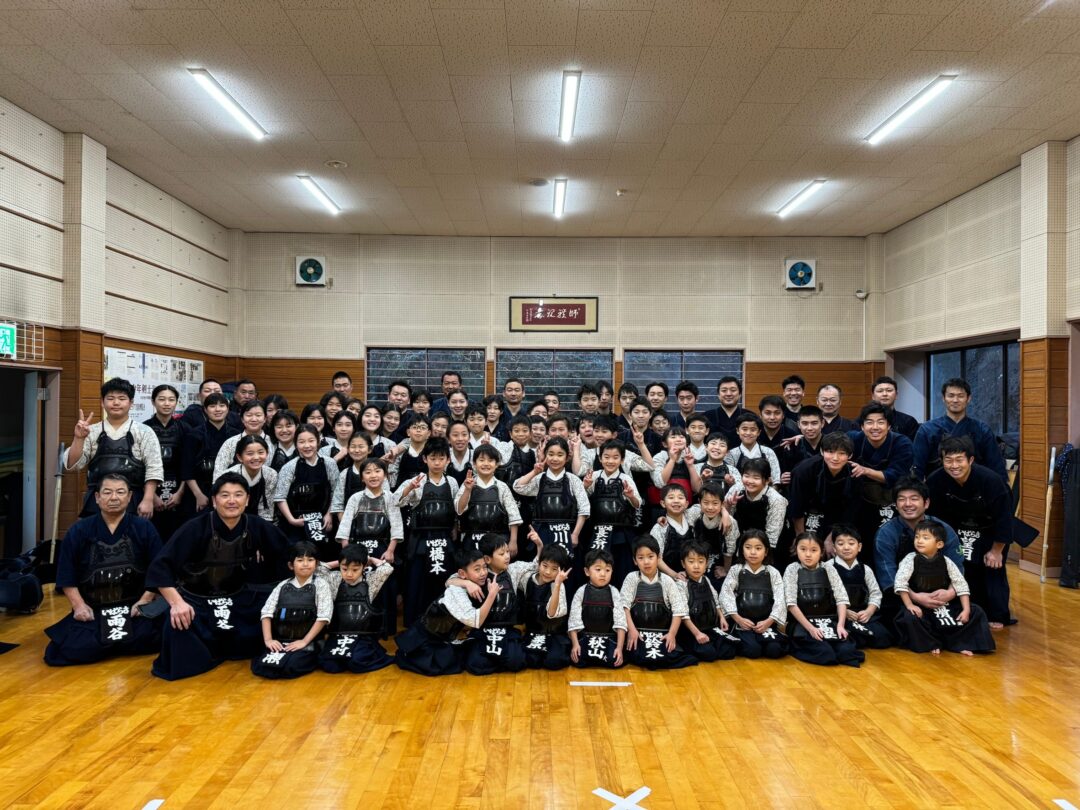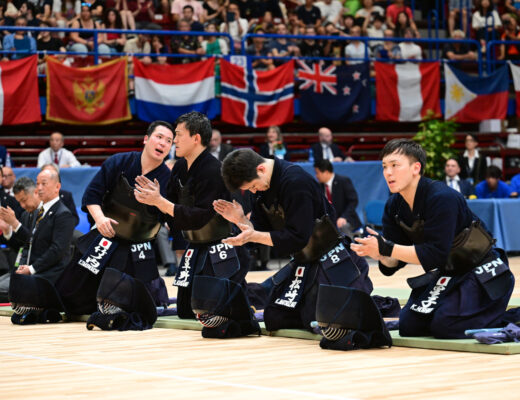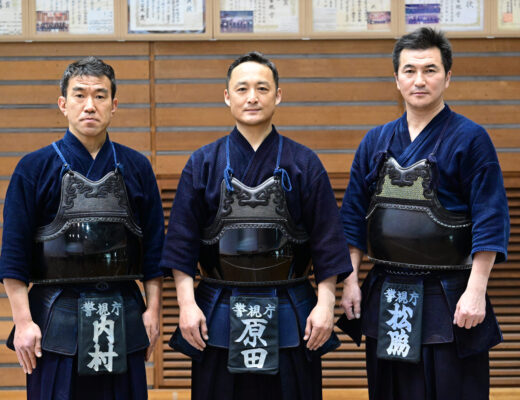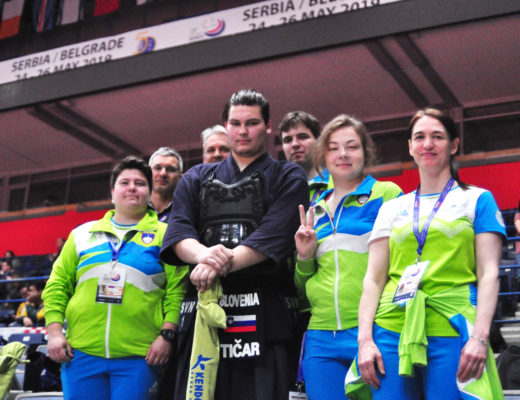KENDOJIDAI 2023.2
Photography: Nishiguchi Kunihiko
Translation: Pepijn Boomgaard
Ibaraki Junior Kendo Team is one of the strongest youth Dojo in Japan. The Dojo was created from the ground up by director Amagai Masumi. The Dojo has raised many students, including Amagai Sensei’s four sons, who were very successful in national youth competitions and have now become instructors themselves. We talked to them about their Kendo family.
Amagai Masumi
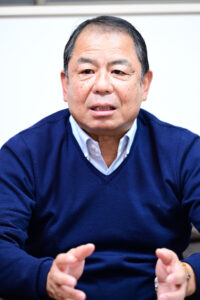
Born in 1954. Graduated from Tamagawa Academy High School and University. Currently, director of Ibaraki Junior Kendo Team, president of Ekisui Gakuen, and president of the Ibaraki Kendo Dojo Federation.
Amagai Teppei
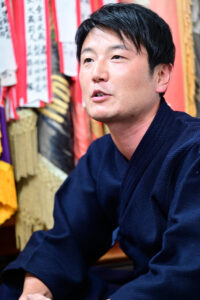
Born in 1980. When he was a student at Ibaraki Junior Kendo Team, he placed 3rd in the All Japan Junior High School team division and best 8 in the individual division, and 3rd at the All Japan Dojo Youth Tournament. Graduated from Toin Gakuen High School and Kokushikan University. Currently, instructor at Ibaraki Junior Kendo Team and headmaster of Ibaraki Kindergarten.
Amagai Musashi
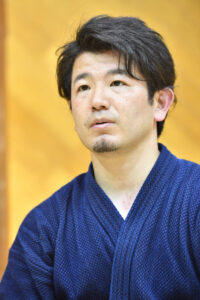
Born in 1982. When he was a student at Ibaraki Junior Kendo Team, he won the All Japan Dojo Youth Tournament primary school team and individual titles, and he won the individual tournament two years in a row as a junior high school student. Graduated from Toin Gakuen High School and the University of Tsukuba. Currently, teacher at Toin Gakuen High School and coach of the school’s Kendo club, which he has led to win the All Japan High School Invitational Tournament.
Amagai Daisuke
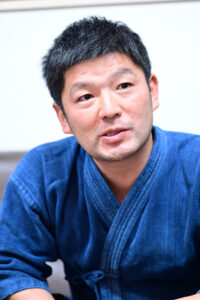
Born in 1983. When he was a student at Ibaraki Junior Kendo Team, he won the All Japan Dojo Youth Tournament team title and the Mito Tournament as a primary school student. In junior high school, he won the All Japan Dojo Youth Tournament team title and placed 2nd at the All Japan Junior High School Tournament. Graduated from Kokushikan High School and Juntendo University. Currently, teacher at Aoba Junior High School and coach of the school’s Kendo club, which he has led to place 2nd at the All Japan Junior High School individual tournament.
Amagai Mizuki
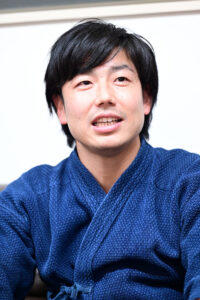
Born in 1987. When he was a student at Ibaraki Junior Kendo Team, he won the junior high school team and individual titles at the All Japan Dojo Youth Tournament. Graduated from Tsuchiura Nihon University High School and Waseda University. Currently, instructor at Ibaraki Junior Kendo Team and headmaster of Ibaraki Chuo Kodomo-en.
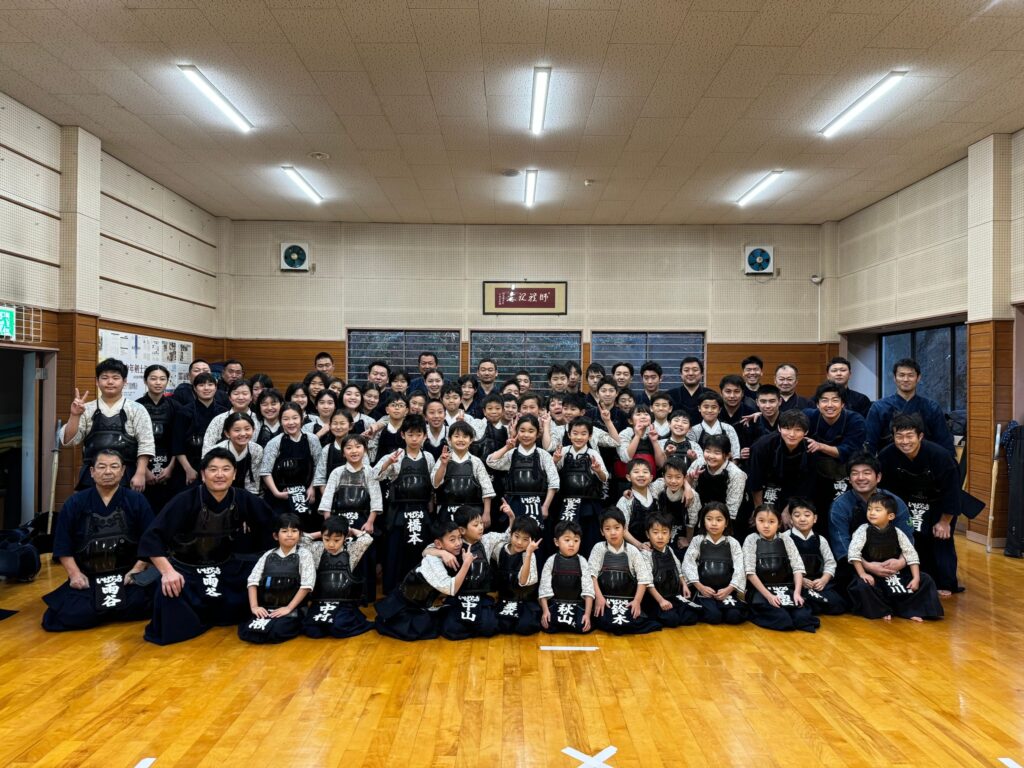
-Ibaraki Junior Kendo Team was founded in 1980, three years after Masumi Sensei graduated from Tamagawa University. I’ve heard that when you started, you didn’t know anything about teaching yet.
Masumi: I started Kendo in junior high school. My teacher there was wonderful, and I wanted to learn more about Kendo. I went to Tamagawa Academy High School and University to learn more about kindergartens, which is our family business.
After graduating from university, I coached the university’s Kendo club for a year while working somewhere else. The next year I returned to Ibaraki. in 1980, the year Teppei was born, I started the Dojo because I wanted to give back to the environment that had taught me so much. Ibaraki has many traditional Dojo, and Kendo is very popular in many areas. I remember thinking how difficult it was for a newcomer like me to compete in such an environment.
Teppei: I have heard stories about how difficult it was at the start. When me and Musashi were in the upper grades of primary school, we were fortunate enough to practice in a Dojo that had already been strengthened by our seniors.
Masumi: I will never forget my first students. I had no experience setting up a Dojo and I didn’t know anything. In the second year, I declared to the children that if we were going to do this, we might as well aim to become the best in Japan. At that time, we had about 30 members, of which 10 agreed and raised their arms. However, when it came time to practice, some of them started skipping out and there were times when only three or four people showed up. I told them, “You don’t understand how I feel. I really want to be the best in Japan.”
Teppei: I heard that after hearing how serious the teacher was, they gradually came together and started keeping their promises.
Masumi: The first students kept up really well. They were working so hard, and I started to think of them as my own children. My four sons grew up watching them.
Musashi: When I was in first grade, the students in the sixth grade won the Mito Tournament (March 1989). They were strong and they were always kind to me, often buying me sweets. On weekends, I would get on the bus with them to follow them to events. It was like a field trip.
Teppei: Our father was not a famous player himself. But after returning to Ibaraki, he had a single-minded determination to make the children strong. I respect that a lot. We are still friends with some of the former students, and the parents supporting us were also an important factor.
The Dojo is Home
Masumi: As we became stronger and started setting our aims at national titles, the relationship between the instructors, the parents, and the students became tighter. We started to work together as one.
Mizuki: I think the reason people describe our Dojo as “home” or “a family” is because we cherish these ties.
Musashi: I have always felt that when parents become more involved, the children become stronger. That is what our father always says as well. When the parents understand and are interested in Kendo, the children become more motivated. That’s why as a teacher, I value my relationship with the parents.
Masumi: We also encourage our alumni who have quit Kendo to come back once in a while. They also sometimes go drinking together. For some alumni it might be difficult to visit, but we want to create an environment that makes them feel like they can always come back. We have a group chat with over 100 members. If for some reason we decide to meet up, at least 20 or 30 people will show up. That’s the kind of atmosphere we have.
Teppei: I think that the alumni feel like we are always looking out for them. They can feel this affection and it makes it easy for them to come back. When we get together, they always talk about how although it was tough back then, that is what has brought them to where they are right now. I think the fact that rather than boasting about how we won, we can talk about how we felt when we lost, or how good the lunch was on a certain day, is what makes this Dojo such a good place.
Mizuki: As we compete in matches, we aim to win, and I think it is good to see the results of our training. But besides that, the Dojo is also a place where we can enjoy the company of our friends. It is also a place where I have learned many important life lessons. This is why I want to keep the Dojo going.
Masumi: It gets lively when the alumni get together. We all remember who we fought at tournaments back in the day. It’s nice to see the alumni working hard all over the country now, but I am most happy when they come back.
Strict in the Dojo, reserved at home.
The rest of this article is only available for Kendo Jidai International subscribers!

